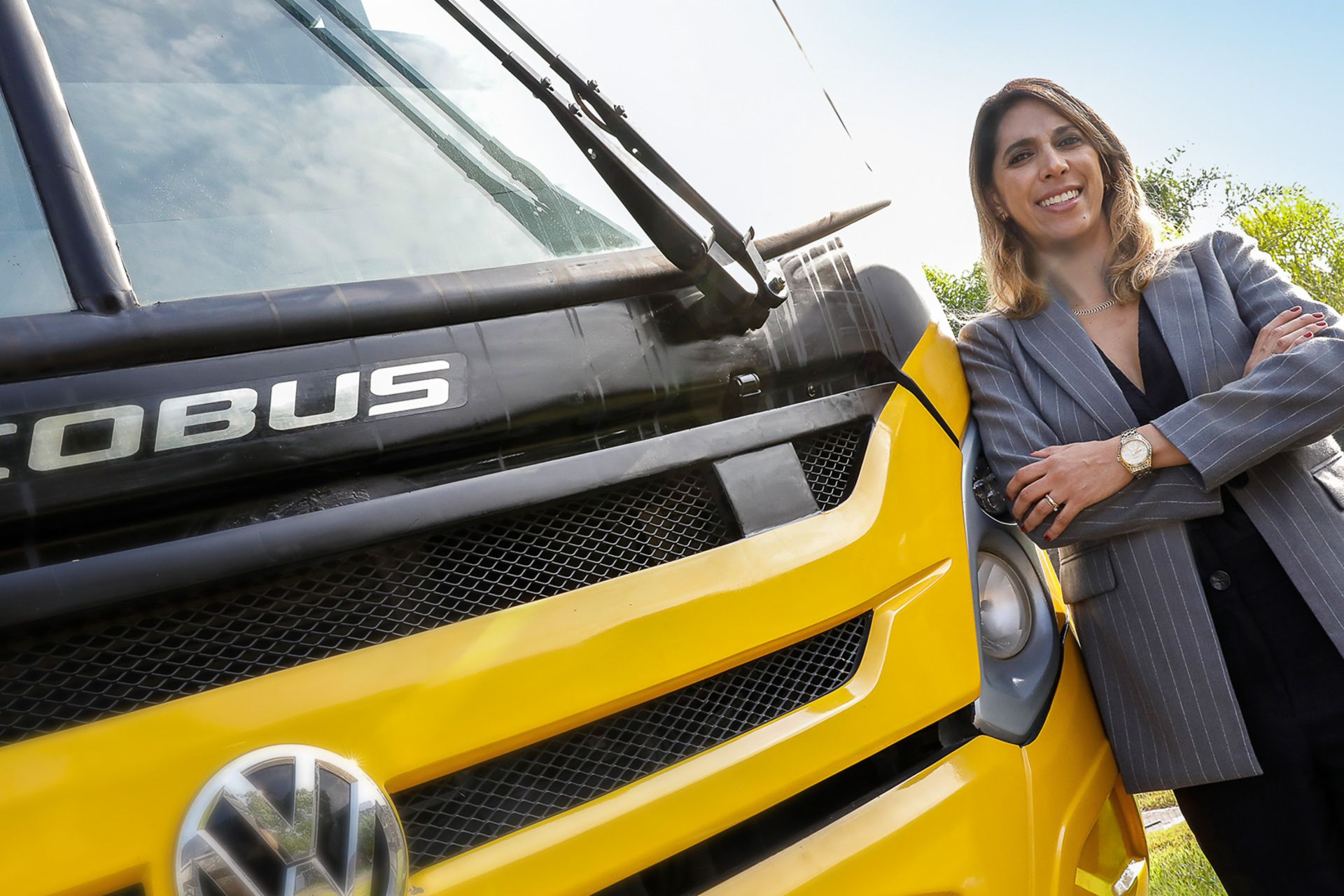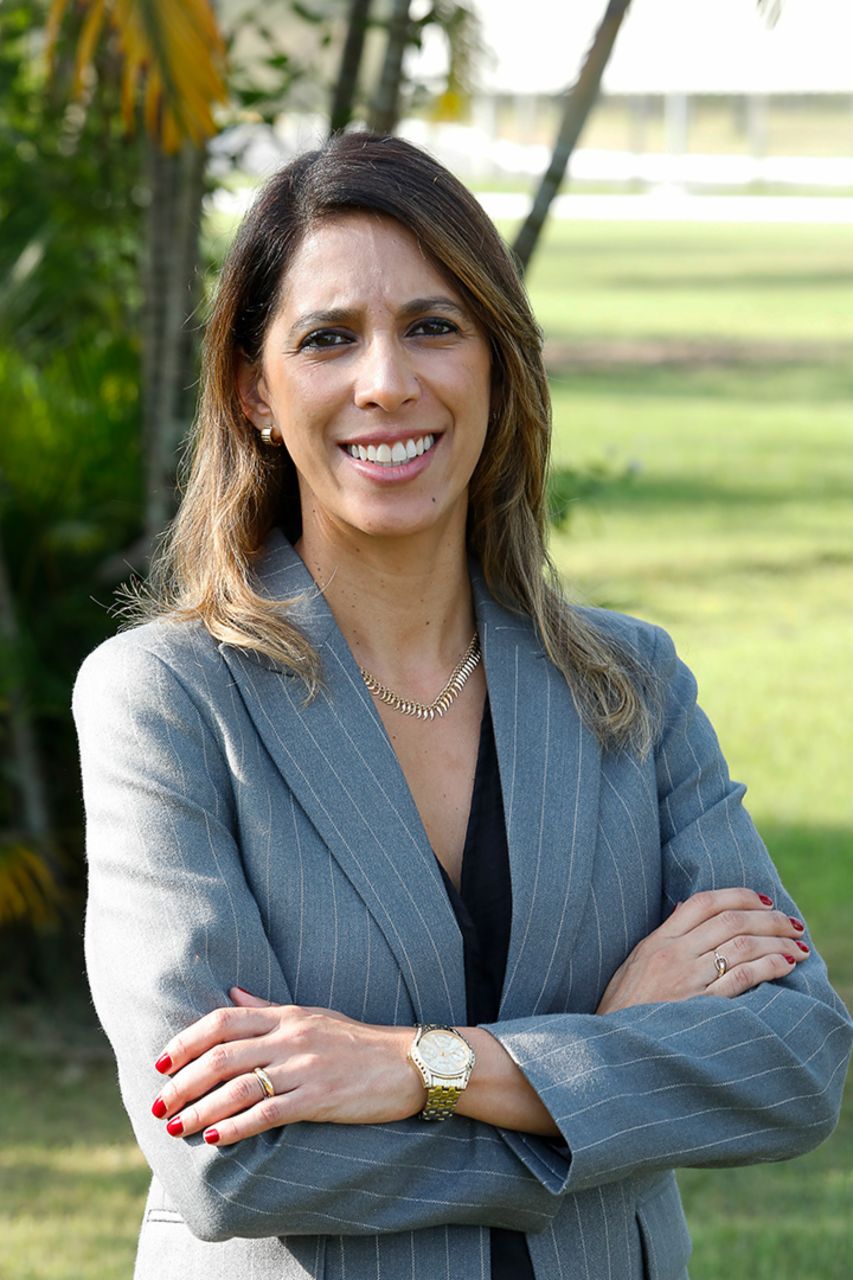
Priscila, you’ve worked in the field of sustainability and ESG for more than 20 years, including the past three years with VWTB. What drew you to this area?
I think that the first thing you need to have in this profession is to align your values with what you do. I believe that science, people, and culture can change the world in a positive way. Working together with the private sector and business, we can develop solutions for a better and sustainable world. It moves me a lot when seeing the result of good initiatives, people driving change, and colleagues collaborating to make this happen.
What are the biggest challenges when it comes to promoting sustainability in the South American market?
The South American market is really moving forward when it comes to sustainability. However, we also need more incentives, particularly financially, for accelerating the adoption of new technologies and more public policies for promoting the circular economy and carbon mitigation and adaptation.
There are many good opportunities here in Brazil. It’s a huge country with many environmental assets, which are very important for the bioeconomy and nature-based solutions in an equilibrium with environment protection and value creation.
You joined VWTB as Head of Sustainability in October 2021. What does your role entail?
My role in the company is to facilitate sustainability-driven actions throughout the organization. I aim to create opportunities for VWTB to deliver sustainable transport solutions for everyone. For example, I work closely with engineers on areas like decarbonization and circularity, and I support dealers who are increasingly asking for more sustainable initiatives.
Besides that, I’m part of a sustainability committee that consists of people from throughout the company, from People and Culture, Strategy, Production and so on. Together, we work on proposals and actions to advance in sustainability across VWTB. And I'm a member of TRATON’s Sustainability Leadership Group, which is led by TRATON’s Chief Sustainability Officer, Andreas Follér. We meet on a weekly basis with a focus on moving forward in three joint impact areas: decarbonization, circularity, and human rights, besides the key principles that will enable us to deliver sustainable transportation.
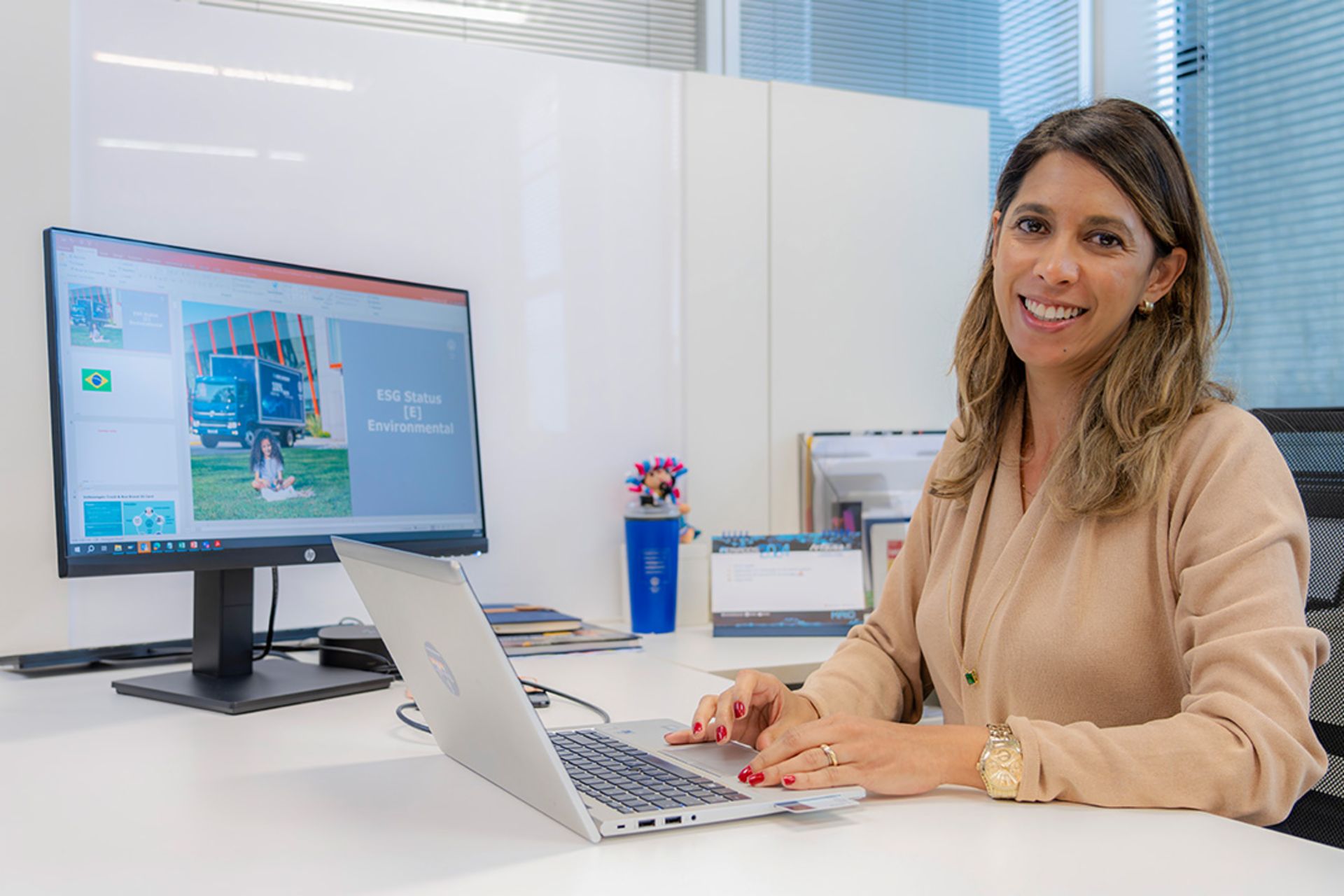
Can you provide insights about VWTB’s ‘Future Program’, and other initiatives that involve international cooperation?
Our Future Program is a comprehensive initiative that serves as an umbrella for all our ESG efforts. It is based on sustainability topics relevant to society, investors, and our business, that are integrated into our strategy.
Building on this foundation, our strategy emphasizes top 10 programs through environment, social and governance agendas. Programs are related to diversity and inclusion, ethical practices, empowering human rights, as well as key areas such as decarbonization and circularity. This last one is exemplified by our work in developments around renewable resources, such as the development of an AdBlue tank with a blend of polyethylene from sugar cane.
Another circular option for our clients, the ‘Volks Greenline’ remanufacturing program, is focused on offering a portfolio of remanufactured parts from VWTB vehicles.
Our strategy execution is tied to executive bonus, with specific goals for increasing women in leadership positions, reducing Scope 1 and 2 greenhouse gases emissions, and advancing BEV developments. Meanwhile, our ‘Excellence’ program ensures we control the goals across different departments, impacting people inside and outside the company through social projects.
Regarding governance, our CEO sponsors our Sustainability Board, supporting our strategy to ensure ESG advances across the company.
Is it a challenge to align certain elements internationally with different markets where there are different regulations in place?
Navigating cultural differences is always a challenge, but in the TRATON GROUP, it’s very interesting. The most important thing, in my view, is to respect the local culture and align it with your own values. Even when cultures differ, we aim to find alignment by adhering to the Group-wide core values. If something conflicts with or goes beyond these values, we need to say no.
Of course, this alignment process isn’t simple, but it’s a concerted effort across TRATON and its operations. Being part of an international company means we benefit from shared experiences across brands worldwide. This interconnectedness can support us during launches and marketing efforts in new business areas, for example.
VWTB is working with the University of the State of Rio de Janeiro and other partners to build up its circular capacity and increase the use of renewable and recycled materials in its products. Can you explain the nature of these partnerships and the positive impact it is having for VWTB production?
In 2021, we established a partnership with the University of the State of Rio de Janeiro aimed at training students and strategizing for sustainability. This is a very successful partnership because, first of all, this is a very well recognized university, and secondly, its campus is conveniently located next door to our company headquarters. This has enabled us to develop courses on the circular economy and circular design. Additionally, workshops with university specialists have allowed us to prioritize projects and led to effective solutions to both simple and complex challenges.
This partnership has produced very good results, as our teams embraced sustainability concepts and reduced waste, while it has led to us rethinking some of our production processes. Moving forward, we intend to expand these courses and training initiatives to enhance knowledge and expertise within our workforce and advance our sustainability goals.
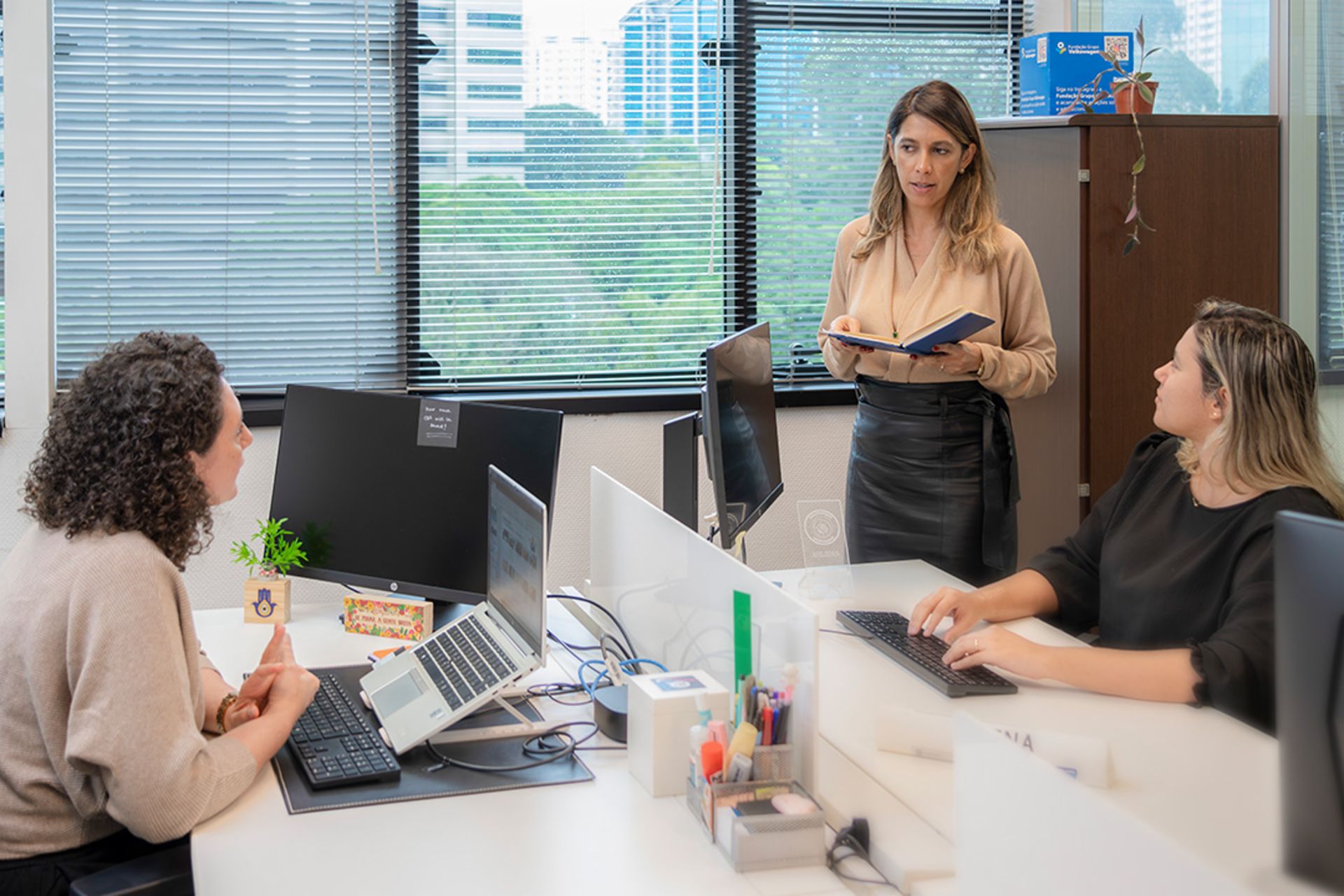
Can you tell us about your work teaching ESG topics for a post-graduation program in Brazil?
I’ve been teaching sustainability postgraduate courses for more than 10 years and now I’m involved in ESG postgraduate programs. This has been a fantastic opportunity for me personally, and I enjoy imparting practical knowledge to future managers and employees, bridging theory with real-world application.
I’m inspired by the passion of my students, who come from a range of fields including biosciences, engineering, and management sciences. Together, we strive to instill a mindset of responsibility and action, knowing that, ultimately, they’re the people who will take decisions or will have to live with decisions made in the coming years, towards the transition to a net zero economy.
Since joining VWTB, you’ve been the driving force of two ambitious company goals: to severely reduce carbon emissions by 2030 and to increase the proportion of women in the Company’s management positions to 30% by 2029. Is VWTB on target to meet these targets? And what more needs to be done?
Yes, I firmly believe VWTB is making significant strides towards decarbonization and our diversity goals, and we remain committed to them. We’ve seen progress since setting these targets, which underscores the evolving mindset of our workforce towards inclusivity and environmental consciousness.
While VWTB is a historically male company, the world is quickly changing. We need to continue to make ourselves attractive to prospective female employees while balancing opportunities for existing women within the company. Inclusivity is important not just in terms of social responsibility, but also as a business necessity for guarantee that we have the society diverse profile reflected in our strategy, creation and perspectives inside the company.
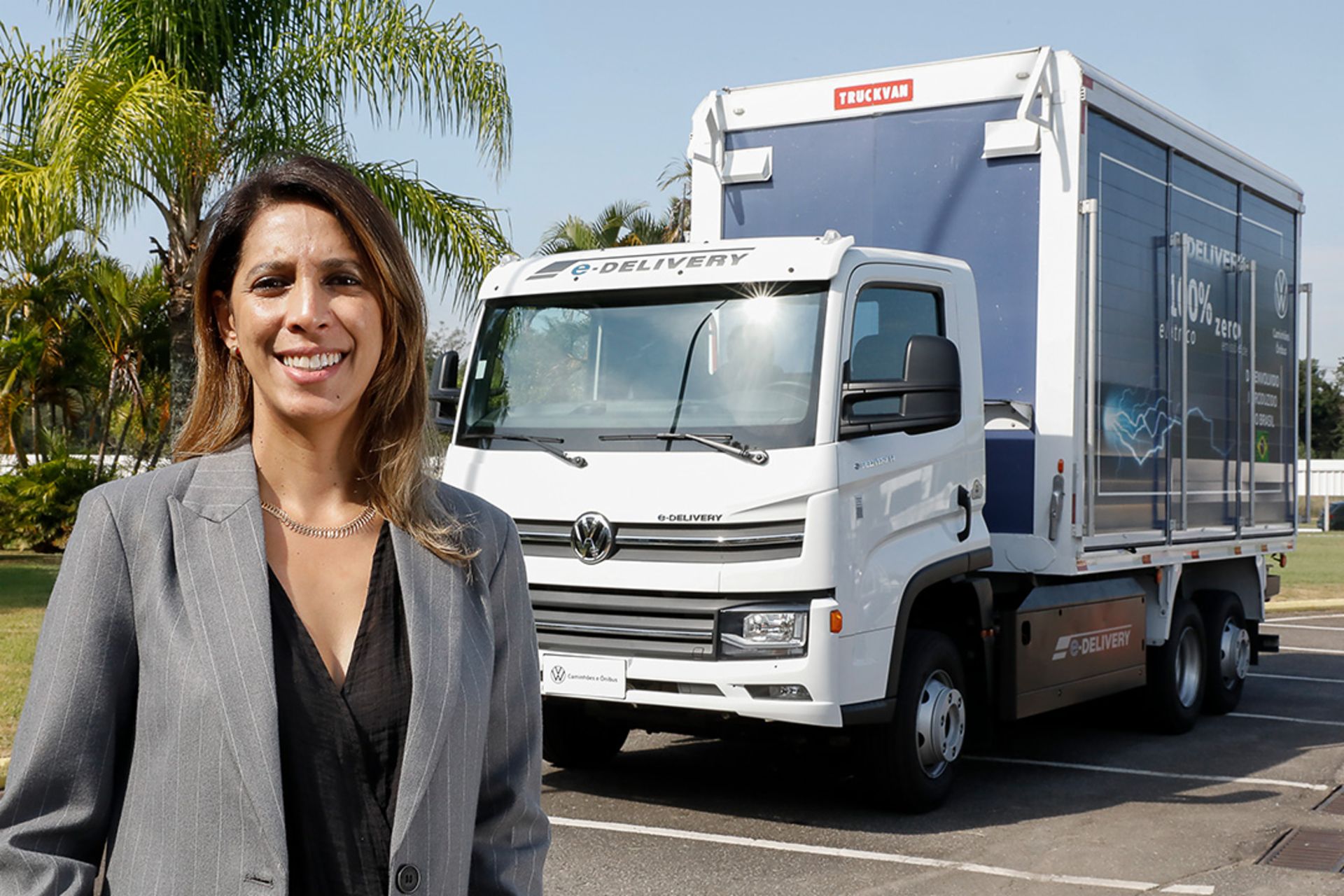
As a Head of Sustainability and ESG, you’re a strong advocate for bringing together people from all backgrounds. In a traditionally male dominated industry, what advice would you give to women who aspire to work in transport?
Firstly, I believe it’s important not to fear being the first woman to speak in the room or to be the first woman working in a traditionally male-dominated business area. We should embrace being pioneers. Research has shown how, in many countries, women have more years of study than the average population, so this knowledge shouldn’t be underestimated or undervalued.
Secondly, women have a remarkable ability to adapt, something that has been honed since human beings first walked the Earth. We’ve adapted our lives for food, for children, for agriculture. Our emotional intelligence enables us to navigate new environments and situations, so it’s important to also use this in the workplace.
VWTB’s Sustainability Report
VWTB recently published its second annual Sustainability Report, which can be found here.
